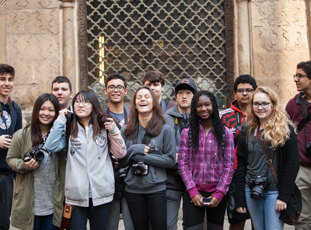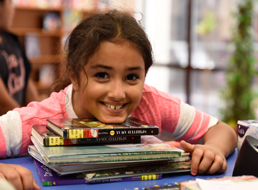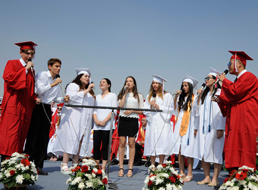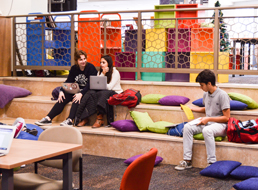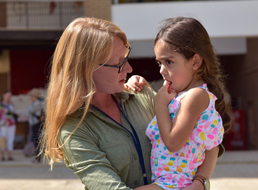CAC KINDERGARTENERS LEARN RESPONSIBILITY BY CARING FOR BABY BIRDS

Visitors passing by room 42 in the CAC Elementary School in the next few days will notice something a bit out of the ordinary: 10 baby chicks happily hopping around in a wooden cage. For 21 days, CAC Kindergarten students diligently monitored, turned, and cared for an incubator full of eggs as part of an annual science unit on the life cycle of animals.
Kindergarten teacher Ana Chavez explained how the lessons are organized to help students direct their own learning process. “It’s an inquiry-based unit. Students begin by saying what they know about animals to start making connections. A lot of conversations happen in small groups, and later on we introduce the science project.”

The family farm of a teacher in CAC Middle School provides the eggs each year. Once the eggs are delivered to campus, students have a few weeks to wait for the chicks to hatch.
Chavez explained, “they make predictions about what is going to happen and learn where the eggs come from and about the hatching process.” Students read this information to one another in class and are encouraged to discover new information on their own by reading nonfiction books about the egg-hatching process.
Caring for the eggs also helps students to develop a better understanding of the CAC Core Value of responsibility. Students ensure that the future chicks have what they need to survive by monitoring the incubator and turning the eggs regularly. “It’s their responsibility to take care of the eggs, and it’s a lot of work” Chavez explained. Having this responsibility helps students learn, though, and keeps them engaged while they wait.

This year, the chicks hatched over a long weekend; when students came into class on Monday, they excitedly crowded around to see the peeping products of their hard work. After a few more weeks in which students will learn to care for the chicks outside of the eggs, the babies will be returned to the farm.
Chavez also reflected on the ways that this experiential unit enhanced students understanding of animals’ life cycles. The unit allows students to “make more of a connection between the content they’re learning and real life. Having an experiment where they can see and touch and take care of the eggs creates a more meaningful experience for them.”
